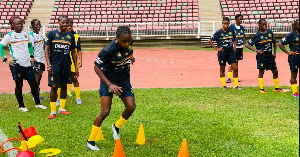According to the authorities, nearly 70 schools in the region of the far north of Cameroon have been forced to close, damaged or open only intermittently since the insurgents of the Nigerian group Boko Haram began to cross the border on a recurring basis.
The 69 affected schools (primary schools for the most part) are the departments of the Logone-and-Chari, and Mayo-Sava Mayo-Tsanaga, in the region of the far North, bordering the fief of Boko Haram, across the border, in northeastern Nigeria.
In Mayo-Sava, for example, 20 of the 30 schools have closed since the beginning of the school year, in September, according to the sub-prefect Ibrahim Koulagna.
"The attacks on Villages and schools by Boko Haram have forced students and teachers to flee. There are many families displaced in the region. This displaced population settled in other localities like Kolofata and Mora», Mr. Koulagna told IRIN.
Terrorists of Boko Haram attacked northern Cameroon repeatedly abducting foreigners and the inhabitants of the region and targeting police and the border services. Yaounde authorities have reinforced their military presence in the region and the army has recently announced having killed hundreds of combatants belonging to Boko Haram. In September, the army reported to have killed the leader of Boko Haram, Abubakar Shekau, but the assertion was contradicted by the insurgents.
"We lose students whenever a village is attacked, even if it is several kilometres from here," said Christophe Barbah, schoolmaster of the commune of Kolofata.
Only a handful of the public teachers assigned to the far North remain stationed. "In 2014, more than 200 qualified teachers have not assumed their responsibilities in these communities and there are many who seek to be transferred elsewhere because of insecurity," said an official of the Ministry of Basic Education.
This official, who preferred to remain anonymous, expressed concern that education in the far North was at serious risk, not only because teachers flee schools in the region, but also because institutions that integrate pupils from other schools receive no additional funds.
Actualités of Wednesday, 10 December 2014
Source: IRIN













